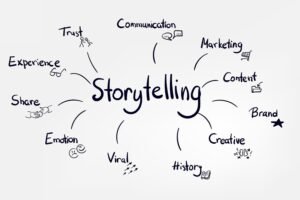As an audiologist, you focus on helping people who experience hearing loss and other hearing disorders. For many patients, treatment includes being fitted with a hearing device. Because so many patients use hearing devices, it can be easy to focus on the technological aspects of your patients’ care. However, recent research has shown that this may contribute to counseling deficits in practice.
One recent study explored challenges in mentoring graduate students in AuD (Doctoral in Audiology) programs in developing their counseling skills. As audiologists, it is important to be able to counsel patients about their hearing loss and provide support for patient adjustment. In the study, it was found that common counseling deficits included dominating conversations, a focus on technological aspects of care (at the expense of addressing broader patient concerns), and missed opportunities to address patient emotions.
Emotions often surface in audiology patients because of the social and emotional impacts of hearing loss. At these times, patients need an audiologist who will listen empathetically, validate their feelings and concerns, and provide support based on their knowledge and experience.
It appears that part of the difficulty in learning and implementing effective counseling skills lies in the challenges surrounding emotional conversations. The results of the study indicate that students may feel uncomfortable addressing patient emotions, and supervisors may not know the best way to help students become adept at dealing with emotionally charged conversations.
Other factors the study found that impact the development of counseling skills include:
- Students’ difficulty in seeing patients’ needs from a comprehensive perspective (beyond technological aspects)
- Students’ struggles to relate to patients and create an effective working alliance
- Students’ inclination to defer to their supervisor in difficult counseling situations
- Supervisors’ difficulty in changing their teaching style to accommodate students’ needs in learning counseling skills
- Supervisors’ lack of confidence in their own counseling skills or in the students’ counseling skills
- Supervisors’ lack of time to address counseling situations and skills with students
- AuD programs’ lack of a dedicated counseling course, and the frequency that counseling skills are taught late in the program
- AuD programs’ lack of opportunities for students to practice counseling skills, especially in “real” settings
Based on the findings of this study, it is apparent that greater education and opportunities to develop and use counseling skills are needed. A recent Delphi study identified 16 knowledge items, 35 skill items, and 13 attitudinal items that are necessary for effective audiological counseling. These items include knowledge, skills, and attitudes such as developing therapeutic relationships, empathetic listening, and respect for varying patient and family world views and values. With audiologists adept at each of these items, the quality of patient counseling would improve greatly.
With these skills, audiologists will be better equipped to handle counseling situations and more fully meet their patients’ needs. You are the one best prepared to care for your patients, and here at AudiologyPlus, we want to help you meet your patients’ needs through the most up-to-date information about the field and complete online solutions. To learn more about our services, please contact us today.




